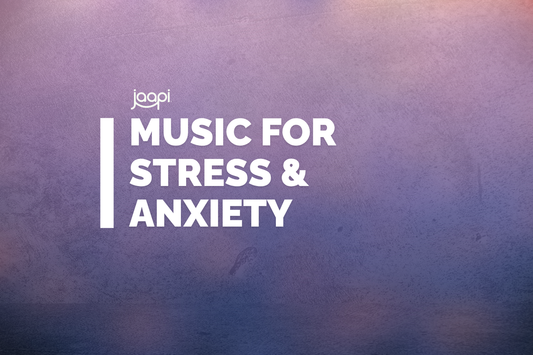What Happens to Your Brain During Yoga Nidra? Neuroscience Guide
During yoga nidra, your brain undergoes profound changes—beta waves slow to alpha and theta states, the default mode network reduces activity, and consciousness remains heightened while your body achieves sleep-like restoration. This creates a unique "restful awareness" state where you get the healing benefits of deep sleep while staying mentally alert.
Affiliate Disclosure: As an Amazon Associate, we earn from qualifying purchases. We only recommend external tools that complement your practice.
Neurological Changes During Yoga Nidra Practice
Recent MRI research reveals fascinating brain activity patterns during yoga nidra:
- Brainwave transitions: fMRI studies show the brain systematically transitions from active beta waves to relaxed alpha, then deeper theta and delta states—while maintaining conscious awareness throughout the practice.
- Default Mode Network reduction: Experienced practitioners show significant reduction in default mode network connectivity, the brain regions associated with mind-wandering, self-referential thinking, and mental chatter that often fuels anxiety.
- Conscious sleep state: EEG measurements reveal theta activity increases by 11% across all brain regions, creating a deeply relaxed state similar to sleep but with maintained awareness and responsiveness to instructions.
- Experience-dependent changes: Practitioners with more meditation experience (averaging 3000+ hours) show greater brain connectivity changes, indicating neuroplasticity benefits that develop over time.
- Emotional processing activation: Brain areas involved in emotional regulation and subconscious processing become more active, potentially helping release buried psychological patterns without the intensity of therapy work.
Want to learn more about frequencies that support these brain state transitions? See our comprehensive list of healing frequencies to discover which tones work best for meditation, sleep, and deep relaxation practices like yoga nidra.
Explore our royalty free meditation music featuring frequencies that support deep theta and delta brain states during yoga nidra.
Free guided sessions:
Download free meditation music to experience brain-wave enhancing soundscapes.
Practical Benefits of These Brain Changes
- Enhanced healing and recovery: The theta-delta brain states support cellular repair, immune function, and nervous system restoration. Create a comfortable practice space with a meditation cushion for seated practice, or lie down with a weighted blanket to enhance the restorative effects.
- Stress reduction: Reduced default mode network activity decreases mental rumination and anxiety while promoting deep relaxation and emotional balance—benefits that often last hours after your session ends.
- Improved sleep quality: Regular yoga nidra practice trains the brain to access restorative states more easily. For deeper rest, explore the best frequencies for sleep to enhance your nightly sessions.
- Subconscious reprogramming: The theta state allows access to deeper levels of consciousness where positive intentions (sankalpa) can take root more effectively. Track your insights and sankalpa progress in a practice journal to notice patterns over time.
- Creative insights: The unique conscious-sleep state facilitates breakthrough thinking and problem-solving by accessing normally unconscious mental processes. Many practitioners report "aha moments" during or immediately after sessions.
- Better focus during practice: If you follow guided audio sessions, use good headphones—clear sound helps your brain entrain to theta states more effectively. Learn more about enhancing your practice with music.
Understanding Your Brain States
The brainwave shifts during yoga nidra—from beta to alpha to theta—are the same states accessed during deep meditation and sound healing. Understanding how these different brain waves work helps you recognize when you've successfully entered yoga nidra's unique "restful awareness."
Beta waves represent your normal waking consciousness—alert, focused, sometimes stressed. Alpha waves indicate relaxed awareness, like the state between waking and sleeping. Theta waves are where the magic happens—deep meditation, emotional processing, and subconscious access. Delta waves represent the deepest sleep, which yoga nidra approaches while maintaining consciousness.
See our post on the 5 types of brain waves to learn more about how each state affects your consciousness and why yoga nidra's ability to maintain awareness in deep theta-delta states makes it so powerful.
Try a Guided Yoga Nidra Session
Want to experience these brain changes yourself? Our guided meditation scripts include sessions designed to guide you through these transformative states. Pair them with healing frequency music for even deeper results.
Why This Matters
Yoga nidra creates a remarkable neurological state that combines the restorative benefits of deep sleep with the awareness of meditation—offering a scientifically-validated pathway to healing, insight, and transformation that goes far beyond ordinary relaxation. One 30-minute session can feel as restorative as 2-3 hours of sleep, making it an efficient tool for busy people seeking deep rest.
The brain changes aren't just temporary feel-good effects. Regular practice appears to create lasting neuroplasticity improvements—strengthening neural pathways associated with calm, focus, and emotional regulation while weakening patterns linked to anxiety and rumination. You're literally rewiring your brain toward greater peace.









